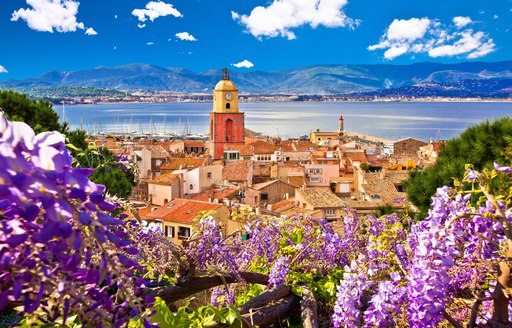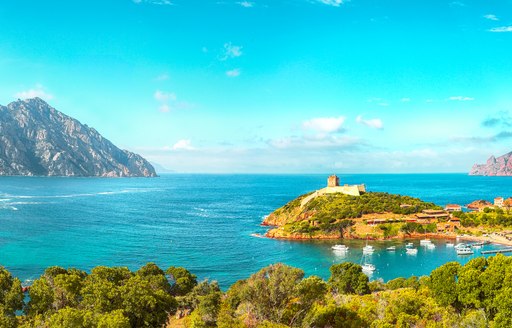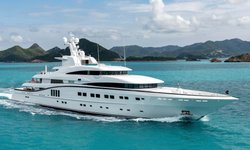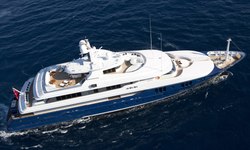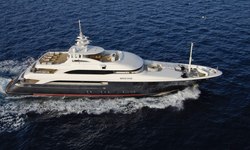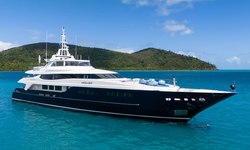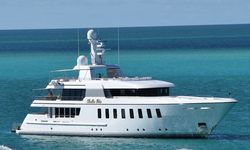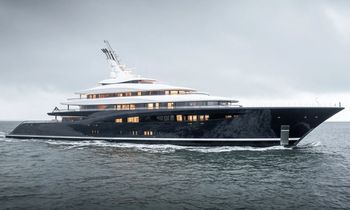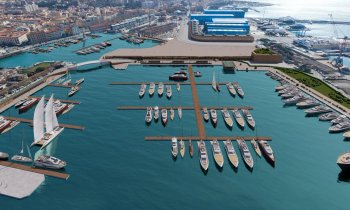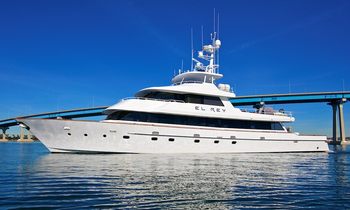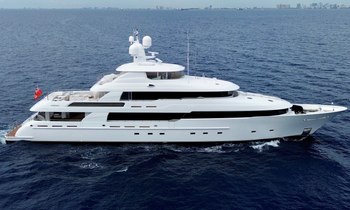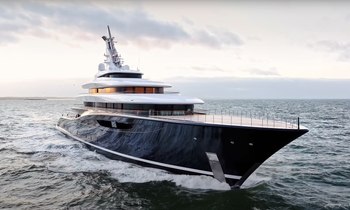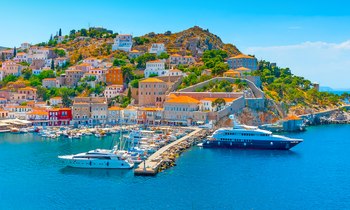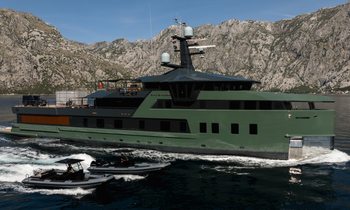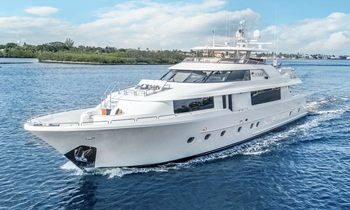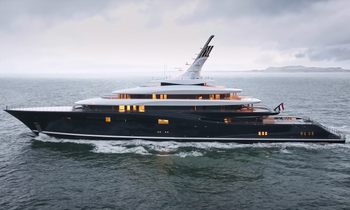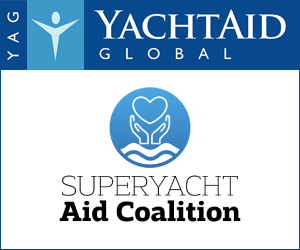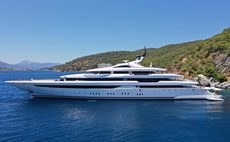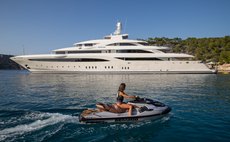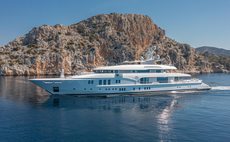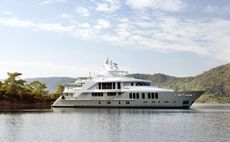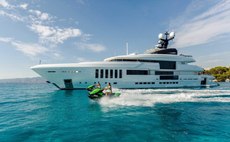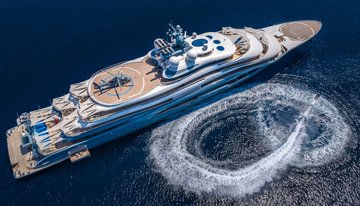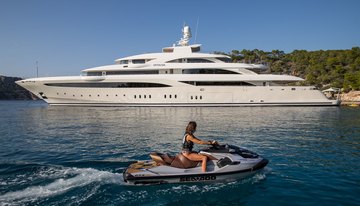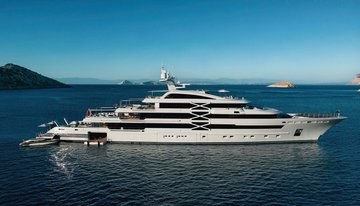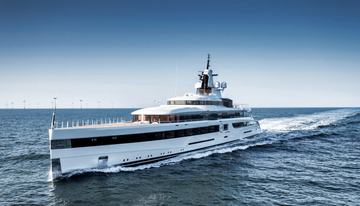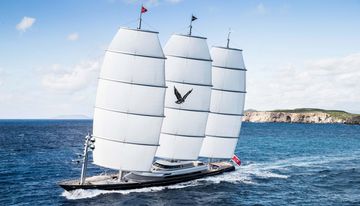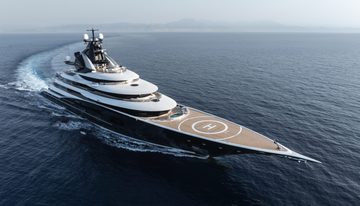A humble seagrass with an almighty environmental role to play is falling under the yachting spotlight.
March 2021 saw France implement new regulations prohibiting yachts and superyachts over 24m (78ft) from anchoring on protected Posidonia seagrass beds. A number of which are located along highly frequented beauty spots along the French Riviera and Corsica. For yacht charter guests who may not be aware of Posidonia's significance and are looking to cruise in the region this summer, what is it, and what does this new law mean for chartering?
Posidonia is a bit of an unsung hero. Considered by scientists as the "Lung of the Mediterranean", it provides one of the most crucial sources of oxygen to these waters — important, as more than half of the oxygen that we breathe comes from the sea. Growing for hundreds of miles across the bottom of the Mediterranean seafloor, just one hectare of Posidonia produces more oxygen than its Amazon rainforest equivalent.
Rarely featured in the press, this ancient seagrass keeps a pretty low profile. But, it has a fundamental function, largely contributing to what makes yacht charters in the Mediterranean quite so extraordinary. Posidonia provides refuge to a marine metropolis of flora and fauna and purifies the water to a crystal-clear degree ensuring incredible swimming, scuba diving and snorkeling experiences. It also protects the magnificent coasts from erosion, as well as preventing the much-loved beaches we love to bronze on from being gradually washed away.
"Posidonia seagrass is like a forest of bonsai" Pierre Descamp, representative of eco-friendly mooring app DONIA
But Posidonia is delicate, and vessels dropping anchor on these underwater meadows can tear them apart and contribute to their demise, alongside other factors such as pollution.
"It's like a forest of bonsai," said Pierre Descamp, representative of DONIA, the app which helps captains in France to locate this seagrass and anchor in a more eco-friendly mooring spot. Much like the Japanese plant Posidonia is highly fragile, but it also grows incredibly slowly — by just 1m (3.28ft) per century. Experts have highlighted that a yacht at anchor for a day over Posidonia could take up to 1,000 years to restore, with the seagrass having already decreased irreparably by 33.5% in the last fifty years.
"Once the seagrass is torn up, it takes an exceedingly long time for these slow-growing plants to recover. Mitigating anchoring impact is pretty much equaled to Posidonia restoration for the case of the Cyclades where no other direct pressures exist." says Maria Salomidi PhD, Researcher and Marine Ecologist of the Hellenic Centre for Marine Research (HCMR).
France's new anchorage regulations are in response to these growing concerns regarding the over frequentation of yachts and their impact on Posidonia meadows in the region.
Indeed, you, the charter guest, will probably be unaware of the eco-project happening around you. Unless you have a favored anchorage that is now protected, this is more about highlighting the key areas and dropping anchors elsewhere. Your captain is likely already cognisant of where to avoid.
Posidonia is normally found in 30m to 40m (98ft-131ft) of water, so you may need to anchor more deeply.
Prohibited zones include:
- Baie de la Ciotat
- Golfe de la Napoule
- Golfe Juan Cap Bénat
- Baie des Anges
- Rade de Villefranche
- Parts of Northern Corsica.
Using the free DONIA app to locate Posidonia-friendly mooring, anchoring on sandy areas or opting for buoys are all strongly recommended by French officials. As for the latter, the deployment of more anchoring buoys is already being set up, with major work well underway in Bonifacio, Ramatuelle and Saint Tropez. But, they are not expected to be ready for use this summer.
Failure to adhere to the rules can result in fines of up to €150,000, a ban on entering French waters or even a prison sentence for captains.
A recent talk on Posidonia anchoring rules involving the French maritime authorities PREMAR (Préfecture maritime de la Méditerranée) saw two representatives state the official body will have a strong presence in popular areas this summer. However, the primary focus was to inform the yachting community and strengthen anchorage best practices rather than enforce sanctions.
However, this friendly attitude came with the warning that yachts may "be made an example of" this season if there is a blatant lack of compliance.
We spoke to Matthias du Verle, who is captain of M/Y QUEEN AIDA (which cruises in France) as well as a board member of GEPY, one of the professional yacht group associations involved in negotiations with the French maritime authorities on this recent ruling. He believed that the yacht charter experience this summer in France is more likely to be impacted by the reduced density of yachts due to COVID-19 as opposed to anchorage regulations "at least.. until next season.'’ Du Verle said a number of vessels had already taken action.
"The captains who followed our advice have taken some preventive measures: for example, QUEEN AIDA fitted a longer anchor chain and acquired a larger chase tender last winter to be able to safely anchor and operate further from the shore." But, he added for smaller yachts in the 20 to 40m (65-131ft) LOA with typically limited chain lengths, it will likely "require captains and charter brokers to be more creative in their offering and to consider sailing off-the-beaten-track."
He added, "this might be the time to seek more secluded beaches and enticing villages. Whilst the vast majority usually congregate along a few miles of coastline, France has a lot more to offer than that. I often find myself the only yacht in an area with stunning scenery — to the absolute delight of my guests on board!"
New regulations "require captains and charter brokers to be more creative in their offering and to consider sailing off-the-beaten-track" Matthias du Verle, captain of M/Y QUEEN AIDA
Although deeply concerned about the economic impact of the regulations on the French yachting community, highlighting that "a larger Mediterranean-wide consultation with the industry and officials is necessary " du Verle did highlight the following point to yacht charter guests in France: ''not only does France lead the way in ocean conservation, but it also does in terms of legal and fiscal attractivity. When departing from Monaco and France, guests could use a cruise agreement that will save them up to 30% on their usual fees. I would suggest asking for one and using the savings to charter a larger yacht or to add a good chase tender to the deal."
Balancing environmental and economic concerns regarding yachts anchoring on Posidonia is certainly a delicate act. But implementing similar regulations in the Balearics in 2018 has been shown to help preserve these subaquatic meadows. "It's proven to be a significant deterrent, with official data showing the number of boats around Ibiza caught contravening the law dropped from 25% to 7.4% between 2018 and 2019" said Kate Benyon-Tinker, spokesperson for IbizaPreservation (IP), a local NGO dedicated to protecting the endangered seagrass.
It's part of the Conservation Collective, which operates a network of local foundations that all promote grass-roots conservation initiatives dedicated to protecting the environment. This includes supporting funds for Posidonia protection elsewhere in the Mediterranean, such as the Menorca Preservation (MeP) and the Cyclades Preservation Fund (CPF).
IbizaPreservation started the Posidonia protection project in 2018, in partnership with Vellmarí Association and National Geographic explorer and marine biologist Manu San Félix in 2018, helping to introduce legislation and fund extensive mapping of underwater meadows around Ibiza and Formentera.
"It's proven to be a significant deterrent, with official data showing the number of boats around Ibiza caught contravening the law dropped from 25% to 7.4% between 2018 and 2019" Kate Benyon-Tinker, spokesperson for IbizaPreservation on eco-anchorage regulations.
But safeguarding Posidonia seabeds in the Balearics is far from over. "Although charter companies and captains are much better-informed about Posidonia than they were a few years ago, much work remains to be done to try to discourage boats from discharging sewage into the waters around the islands. This is illegal less than 12 miles from the coast but many continue to do it. The resulting water pollution is a significant driver of decline in the Posidonia meadows" added Benyon-Tinker.
IbizaPreservation's work continues tackling this issue as part of the Marine Forum of Ibiza and Formentera, which brings together NGOs and private sector players (including marinas and harbors) to promote the protection of the local marine environment.
As the summer season gets underway in France, these long ribbons of grass are soon set for yachting stardom.
RELATED STORIES
EDITOR'S PICK



